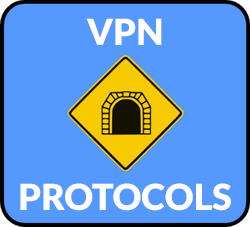As VPN spread, VPN speed conjoins security and privacy as an essential regulatory concern. In the event that you have to add transfer speed to your VPN, what amount would you require keeping in mind the end goal to accomplish a decent harmony in the middle of security and speed? While each factor is distinctive and important, a great knowledge on what boost a VPN can help you amplify speed without trading off security and privacy. I’ll clarify how different variables can influence your VPN speed and a piece of the choices you have for accomplishing your goal.
A hefty advantage of VPN that it underlines both security and privacy with moderate speed connection. A VPN is typically situated up with security as one of the essential advantage any VPN should have, and much of the time.
VPN protocols and connection speed
First, let’s get to know different VPN protocols1. PPTP VPN
This is the most widely recognized and broadly utilized VPN type. They empower approved remote clients to interface with the VPN system utilizing their current Internet connection and afterward sign in to the VPN utilizing password verification. PPTP remains for Point-to-Point Tunneling Protocol. The bad thing about a PPTP is that it doesn’t give encryption and it depends on the PPP (Point-to-Point Protocol) to establish safety.
2. Site-to-Site VPN
Site-to-site is much the same thing as PPTP with the exception of there is no “committed” line being used. It permits diverse destinations of the same connection, each with its own network, to join together to frame a VPN. Not at all like PPTP, encryption and unscrambling could be hardware based.
Read more about VPN protocols HERE
3. L2TP VPN
L2TP or Layer to Tunneling Protocol is like PPTP, since it additionally doesn’t give encryption and it depends on PPP convention to do this. The contrast between PPTP and L2TP is that the last gives classify information as well as information respectability. L2TP was created by Microsoft and Cisco.
4. IPsec
Attempted and trusted convention which sets up a passage from the remote site into your focal site. As the name recommends, it’s intended for IP activity. IPSec cost a lot, drawn out customer’s time and this can be viewed as a very not good element.
5. SSL
SSL or Secure Socket Layer is a VPN open by means of https over web program. SSL makes a safe session from your PC program to the application server you’re getting to. The real good thing about SSL is that it needn’t bother with any software in light of the fact that it utilizes the browser as the customer application.
6. MPLS VPN
MPLS (Multi-Protocol Label Switching) are horrible for remote access for individual clients, however for site-to-site network, they’re the most adaptable and versatile alternative. These frameworks are basically ISP-tuned VPNs, where two or more locales are joined with structure a VPN utilizing the same ISP. A MPLS system isn’t as simple to install or add to as the others, and subsequently sure to require more cost.
7. Hybrid VPN
A couple of organizations have figured out how to join great highlights of SSL and IPSec & additionally other sorts of VPN. Mixing VPN servers have the capacity to acknowledge connections from numerous sorts of VPN customers. They offer higher adaptability at both client and server levels and certain to be costly.
So the type of your VPN can also have influence on its performance and speed Ex: If you use a site-to-site VPN that connects two various remote offices, it’s about both ends use dedicated service made for an “always” VPN tunnel. If your VPN speed seems slow, you may need to boost the volume of the tunnel by putting additional bandwidth at the two ends. You may also change the options for the configuration for more speed.



